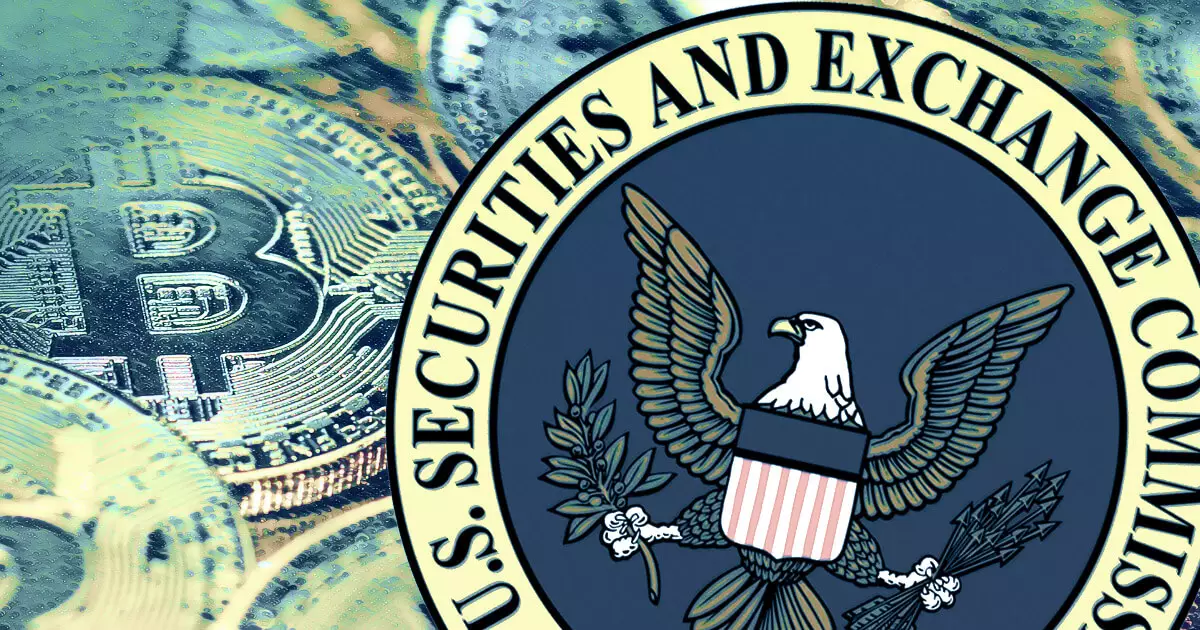Reports have emerged that the U.S. Securities and Exchange Commission (SEC) has returned recent spot Bitcoin exchange-traded fund (ETF) applications. These applications, submitted by exchanges on behalf of BlackRock and Fidelity Investments, among others, were regarded as not meeting the required standard of being “sufficiently clear or comprehensive.” The SEC’s decision was based on the fact that the applications failed to identify the spot Bitcoin exchange that would enter into a surveillance sharing agreement (SSA) with Nasdaq and Cboe. This agreement is crucial for the SEC as it aims to prevent fraud and manipulation in the underlying market of an asset.
According to an anonymous source cited by the Wall Street Journal, the lack of identification of a spot Bitcoin exchange for the SSA was the main reason for the SEC’s rejection of the applications. The SEC requires this agreement to be in place to ensure the integrity of the market. The filings revealed that Nasdaq and the Chicago Board Options Exchange (Cboe Global Markets), which plan to list many of the recently filed spot-Bitcoin ETFs, did not express an intention to enter into an SSA with a spot crypto exchange. Instead, they clarified their intention to enter SSAs with the Chicago Mercantile Exchange (CME), a Bitcoin futures market of significant size, through their membership in the Intermarket Surveillance Group (ISG).
Exchanges Argue for the Sufficiency of ISG Membership and Bitcoin Futures Market
The exchanges argue that the ISG membership, which includes almost every major stock exchange in the traditional finance industry, provides sufficient surveillance and information sharing to prevent fraud and manipulation. They also state their intention to use the S&P Global Bitcoin Index and Bitcoin Futures market to track price performance. The exchanges contend that the Bitcoin Futures market is the leading market for Bitcoin price formation, making it difficult for actors attempting to manipulate the price of Bitcoin to do so without participating in the Futures market and being subject to surveillance.
By entering into an SSA via their ISG membership with the CME, the exchanges believe they have adequate measures in place to detect any fraud or manipulation in the market. They argue that this arrangement should satisfy the SEC’s concerns, as it has been deemed acceptable in the past. The filings cite the Commission’s historical stance that joint membership in the ISG constitutes a surveillance sharing agreement.
Furthermore, the exchanges highlight the fact that underlying spot markets for commodities and currencies, such as gold, remain largely unregulated. However, this has not prevented ETFs tied to these assets from entering the market, as there are ways to detect manipulation based on futures. The exchanges argue that the precedent set for gold ETFs should also apply to Bitcoin, which regulators commonly treat as a commodity.
Cboe has publicly confirmed that it will refile the applications for the ETFs it intends to list. This decision comes after receiving feedback from the SEC, indicating potential changes to the SSA clause and specification of a spot crypto exchange. However, the options for choosing a spot crypto exchange are limited. Coinbase, which serves as the custodian for most of these applications, could be a risky choice given its ongoing legal battle with the SEC. It remains unclear whether simply adding a spot crypto exchange to the filings will be sufficient to satisfy the SEC, despite the various arguments presented in the filings.

